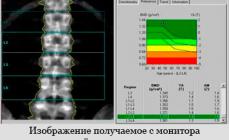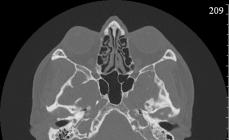The day before yesterday, after the lesson, one student approached me (by the way, the level of upper-intermediate) and said literally the following: "I do not understand when in the past time you need to say DID, and sometimes - WAS. Often it melts the brain and causes dry mouth. "
Brightly imaging the molten brain and the desired mouth of the girl, I decided that she would need to help. Let's figure it out with these DIDs and WAS.
Rule 1.
If we need to say in the past timeaffirmative sentence, we say the second form of the verb.
For example: I. wrote. A Love Letter To the President. I. aSKed.hIM TO MARRY ME. - I posted Letter about love president. I askedSo that he marry me.
Rule 2.
If we need to say last time question or negative offerthen we are talking dID (or dIDN "T) + 1 Form of the verb.
For example: Why. dIDyou. dRINK. My Beer. ? - i DIDN "T DRINKyour Beer. It Evaporated. - Why did you drink my beer? - I did not drink it. It evaporated.
In this case, the verb dID - past time marker. That is, he does not translate, and serves the only goal - to show the past time.
The verb DO is the same as all other verbs. That is, if we want to put it in the past time, then let's say it the second form is DID (according to Rule 1).
For example: I. dID Yoga, Ate A Banana and Went to Yvonne. - I done Yoga, ate a banana and drove to the meter.
And if we want to say this verb DO in the question or denial? Look at the rule 2. In accordance with it, you need to talk dID YOU DO.or DIDN "T DO.
For example: WHEN. dID You. do. The Cosmopolitain Test? - I. dIDN "T DO IT. I TORE UP THE MAGAZINE. - When you made Test from the magazine "Cosmopolitan"? - I did not do his. I brooded the magazine in Klochery.
Wherein in the phrase "Did You Do" The first DID is markerwho in no way does not translatebut the second DO is full verb, which the translated as "done".
There is one verb that behaves ugly, spits all the rules and egoistic ignores different stupid markers. Your name is his verb to be.
Look once again on Rule 2 and say in English: "I did not buy," "I did not eat," "I did not wash" and "I didn't exist".
What happened? I Didn "T BUY, I DIDN" T EAT, I DIDN "T WASH and I DIDN" T Tear Up.
And it turns out that by analogy "I was not" will I Didn "T BE, right?
But you have to say I WASN "T. Because the verb to be is an egoist.
And in the question, too, it is necessary to say not "Did He Be", but "WAS HE".
For example:
Was.John At Home WHEN THE POLICE CAME? - He. wASN "T.at home. He. was. in the garage. - John was Houses when police arrived? - It was not at home. It was in the garage.
Here is the verb WAS. Translated into Russian.
And sometimes WAS. does not translate, and only shows that we are in time Past Continuous. This is the past time to notice to the question "What did" (and not "what did").
For example: Last Eveing \u200b\u200bI was Eating.crayfish Pate And. reading. Walter Scott. - Last night I el (what did the cancer pate and was reading (what did) Walter Scott.
So, summarize.
1) DID may mean "made". Then the question form will be "DID YOU DO?" - "Did you do?", And denial - "I Didn" T DO "-" I did not do. "
2) "DID" may be a Past Simple marker (last time answering the question "What did you do?"). In this case, the DID is not translated in any way: "Did You Buy?" - "You bought?"; "I Didn" T Forget "-" I did not forget. "
3) Sometimes "WAS" (WERE) * means "was (s)." In this case, the question is "Were You / Was He?" *, And denial - "I WASN" T / You WEREN "T" *.
4) Sometimes "WAS" is a Past Continuous marker (last time answering the question "What did you do?"). In this case, WAS is not translated.
* I Was.
You Were
He / She / IT WAS
We Were
They Were
And now - exercise. Translate into English.
1. Have you been to the theater of dwarfs yesterday? - Not.
2. Yesterday I made a lot of good deeds.
3. The seser slept when the doctor ate cancer pate.
4. When did Louise come from Montenegro? - She did not come.
5. Why did you do homework?
6. Yesterday I collected mushrooms, but I did not forget to congratulate Pedro Happy Birthday.
7. I was in the fitness club, but I did nothing there.
Keys to the exercise -
To be or not to be? That Is Not The Question ... The sea deity of proteins from the ancient Greeks could (like the sea) take any appearance. What are we we?
To the fact that the verb "to be" is known in the world not only as the most life and always relevant, but also as the most changeable (Protean) in english language, ever-changing and receiving different forms, sometimes not as noticeable to us.
Considering that it is so often used in English speech, it is rather sad that "to be" should be the most inconstant and slippery verb in the language. Let's learn it better. C "MON!
What is the verb to be and why need
The verb to be (AM, IS, Are) is the basis of the English language grammar. If you misunderstood or missed this material, then all your study of English is most likely to be small. Therefore, if you feel that somewhere you have a gap in this material, it is better to stay longer on this article.
It is this verb that underlies the construction of approximately 30 percent of all English grammatical structures and it is from it that it is worth starting the study of English grammar.
For example, to say "I am a student", we must insert the necessary form of the verb ligament "to be" and the proposal will ensure the meaning of "I aM. A Student. " - "I (is) a student."
We must gently choose the correct form of the verb for the object, depending on the only or multiple number. It is usually easy. We would not write: "The Troops Was Moving To The Border" - "The troops moved to the border." Well, where is it good?
However, some proposals require more attention. How do you, for example, write:
The Majority of Facebook Users are (oR is?) UPSET ABOUT THE INCREASE IN SPAM.
Most Facebook users are upset due to an increase in spam volume.
In fact, in this sentence it all depends on your accent - if it is concentrated on users- put " are", if on group of people— « iS.».
Multiple or only number depends on your choice. If finding it, what exactly to focus on, choose what you sound better. It is unlikely that your selected form "To Be" will upset someone.
By the way, "Majority" is used only with calculated noun: "HE ATE the Majority. Of. cookies."But not" He Ate the Majority of the Pie ". Instead, say: "HE ATE most. Of the Pie. "
Translation into Russian verb to Be
"To Be" is translated as "to be", "to be", "exist", "be" or not translated at all, and maybe in PRESENT (AM, IS, Are), Past (WEs, Were) and Future (Will ( BE) / SHALL (BE) times. The form of the verb depends on who produces action.
Unlike the Russian language in English, the verb bunch never falls, due to the strictly fixed order of words:
Rule to be: subject to subject.) + leaving ( verb.) + Supplement ( object.).
- As self glagol(Being to be, exist or not translated):
I. aM. at home.
I am at home.
She. was.aT The Institute Yesterday.
She was at the Institute yesterday.
Not iS.in new york.
He (located) in New York.
- IN questionative The form of the verb "to be" is set before subject to And does not require an auxiliary verb to form a questionative or negative form. The same thing happens in the continuative (stable) form of verb (Continuous).
IS. HE IN NEW YORK?
Is he (located) in New York?
Was. SHE AT THE INSTITUTE YESTERDAY?
Was she yesterday at the Institute?
- Negative The form is formed by negation " not."Which is set after The verb "to be".
She. was. not. (wasn't) At the Institute Yesterday.
She was not yesterday at the Institute.
Not iS. not. (isn't) in new york.
He is not (located) in New York.
In the conversational speech, "not" is usually merged with "to be" forming reduction:
iS Not. = iSN "T.
are Not. = aren "T.
The verb "To Be" is also reduced by personal pronoun:
I am. = I "M.
We Are = we "Re.
He is = hE "S.
- As auxiliary verb.
Used to form verb forms of continued times ( Continuous.) and continued perfect times ( Perfect. Continuous.).
They are reading. a Book.
They are reading a book.
He. iS Sleeping. now.
He is sleeping now.
We. have been working. HERE FOR 10 YEARS.
We work here (already) 10 years.
Auxiliary verbs, by the way , Also can be combined with the basic form "to be" for the formation of simple answers:
Is Jack In Class This Morning?
Well, He. might bE..
Is Anyone Helping Jack With His Homework?
I "M Not Sure. Jane could. bE..
Also, "to be" is used to form an affirmative collateral ( Passive Voice):
Active: NOT BOUGHT A NEW MAGAZINE.
He bought a new magazine.
Passive: A New Magazine was. Bought.
New magazine bought.
- As glagol-bundles (be, to be).
I. aM. a doctor.
I am a doctor.
Not iS. a doctor.
He is a doctor.
Her New Hat. iS. Red. Her new hat is red.

- In the design " tHERE iS./tHERE are"(Being, it is).
THERE iS. a table in the room.
In the room (there) table.
In this sentence " tHERE"Is formal subject to. The noun is valid for the verb "Be" (IS), i.e. "Table".
If this is subject to the plural, then the verb "to be" should also be in the plural.
THERE are tables IN THE ROOM.
In the room (there) tables.
For change time Changes the form of the verb " to. bE.»:
There Was. a table in the room.
The room was a table.
THERE WERE. Tables in the room.
There were tables in the room.
Translation of proposals with the construct "TheRe Is / There ARE" begins with translation circumstances places.
Negative the form:
There is. NO Table in the Room. (There isn't a table ...).
In the room No (no) table.
There is. No Water in the Bottle. (There isn't ANY WATER IN THE BOTTLE.)
In the bottle no water.
Interrogative form:
Is there A MAN IN THE HOUSE?
In the House Is there a man?
Are there (Any) Apples in the GreenGroces?
In vegetable Store are apples?
- "To be" often works in a bundle with other verbs:
He. iS. playing. The Piano.
She. will Be Arriving This afternoon.
- And sometimes "to be" will stand self by to myself. Especially in simple responses for no less simple questions:
Who "S GOING TO THE MOVIES WITH ME TONIGHT?
I. aM..
Who "S Responsible for this message?
She. iS..
PRESENT.:
I. aM. To (not to) / We Are To (not to) / You are to (not to);
He./she./iT IS. To (not to) / They are To (not to).
Past.:
I Was. To (not to) / We. wERE To (not to) / You Were To (not to) You Were To (not to to);
He./she./iT. was. To (not to) / They wERE To (not to).
- To be ( PRESENT.) Used only from Indefinite Infinitive (Uncertain infinitive).
THEY ARE TO BE HERE.
They should be here.
- "TO BE" ( Past.) S. Indefinite Infinitive (uncertain infinitive) and with Perfect. Infinitive (Perfect infinitive), which means that the action is not fulfilled:
She. was. (Supposed) to be in the cinema.
She had to be in the movies.
- Modal verb "To Be" can be used to express responsibilitieswhich is based on previous agreement (plan, schedule etc.)
We Are To Go to the Cinema.
We must go to the movies.
- We also use this modal verb to express order or instructions:
You are to go to school.
You need to go to school.
- We use "to be" if something categorically prohibited in negative form.
Children. are nOT ALLODED to Drink Alcohol.
Children are forbidden to use alcohol.
- "To be" is used for urgent council or wishes:
You are to Drive Straight.
Led the car straight.
- "To be", in the assistant pledge (built with the help of infinitive "to be") and Past. Participle— 3 Form of the wrong verb or addition of completion "- eD"To the correct), describes opportunity:
SHE WAS NOT TO BEheard.
It was impossible to hear her.
You. wERE TO BE. Heard Very Good On The Concert.
You were very well audible at a concert.
Conclusion
We looked at all the main important nuances of this Caverzny verb. For the last time we draw your attention to the fact that when you say any phrase and doubt whether it is necessary to put the verb BE there, you can always check yourself, asking for a proposal questions: I am who / than, where is it, is what?
If, in translation of the word "is, there is, there is a proposal of a logical meaning, then in English such a proposal will be correct.
We hope this article helped you figure out the verb to be, simple only at first glance. Cheers!
Big and Friendly Family EnglishDom
Hello, friends. Many people make a mistake without using aM, IS, Are auxiliary verbs in presentwhen they need. In our lesson, we will focus in detail on AM, IS, Are, we analyze the situation when these three words need to be inserted into the offer. At the end of the lesson, you can get a test and check yourself. As I said, AM, IS, Are is needed in the present time. These three words are the forms of verb To bewhich is translated as "to be". AM, IS, ARE can be translated as "there", but almost always in Russian, these verbs are generally lowered in speech. From here and difficulties arise.

A bit of theory
As you probably know, we must use in English in the proposal and subject to both. In other words, in any sentence there is always the author of the action (who?) Is subject to. And there is an action produced by them (what does it do?) Is a fault. This is very important for understanding the English grammar system as a whole.
But now we will stop at the present time.
In Russian, when the action is not specified, we understand that the situation takes place in the present time.
For example: Coldly. Rain. I am under the umbrella.
In each of these offers there is no verb, there is no explicit action. But, reading them, we understand that all this happens in the present.
Now consider how this situation sees this situation:
[This state is] Cold. [This state is] rainy. I [there is] Under the umbrella.
"This state" - "IT" is subject to. By the way, it is also called "formal subjectable". Because it is necessary exclusively for the grammatical design, and no sense carries.
In the third sentence from our example to be subject to eat - this is the word "I", the author of the action.
As you might guess, the action that is available in each example is the verb "there" - the version of the verb "to be", "be in a state."
Do you know that in the old Russian language the word "is" used, but did it sound "Esm"? Remember one of winged phrases From the remarkable film "Ivan Vasilyevich is changing a profession," when the king Ivan Grozny says: "AZ EMS Tsar, John Vasilyevich". "Az" is "I", and "Esm" is "there." Over time, this form came out of everyday life.
Let us remember the rule:
Where in Russian there is no visible action, there is an action in English.
Usually, this applies to the present.
In Russian for the past and future time, we call action.
Example last time: It was cold. Was rain. I was Under the umbrella. In the future time: Will be cold. Will be rain. I will Under the umbrella.
Here, the action is expressed by the verb "Was / was / was" in the past and "will / will" in the future. You just need to add a formal to be to translate such a proposal into English.
Verb "To be" (to be) has in English 3 forms: AM / IS / Are. Please note that in itself to be is not translated in any time, but depending on whether we talk about the present, past or future, to be begins to change. Just as the Russian word "be" is changing in "Was", "there" or "will" depending on time.

In the role of the subject acting such proponation , as
I - I.
You, you - you
He, she, it - he, she, it
We are we.
They are they
And words that can be replaced by these pronouns.
For example, children - they - they
From the form to be depends on the subject:
I am.
You are
He, She, IT IS
We Are
They Are
Thus, Am can only be used with I, in any other case.
Are we set, if you are in the role of you, we, they and words that can be replaced by these pronouns (People, Eggs, "You and I", etc.)
IS appears only after he, she, IT and words replaced by them (Kate, A Boy, An Apple, A COW, etc.)
Carefully learn the table and examples:

AM, IS, Are very often reduce In speech and in writing. Instead of the first letter, an apostrophe is put.
Negative Not.
If we want to make a negative, then you need to put a negative particle "not" immediately after AM, IS, Are. Also, not can be reduced for the convenience of speech. At the same time, 3 denial options are used:
You Are Not - You aren't - You're not
But for I AM there are only 2 options:
I am not - I'm not. Reduction I amn't does not exist.
was. - used with nounsin the singular ;
wERE - With nounsin plural .
Note that the pronoun you. In English stands in a plural and therefore always consistent with the verbs in the form of a plural!
The verb decline table is in the last time:
| I. I / He he / she she / it it | was. | (not) | iLL Last Week. |
| We. We / You / you / her they | wERE |
For the formation of denial need to put a negative particle not. After the verbs of WAS or WERE.
I Was. ILL. I Was.
n "T. AT School Yesterday.
I was ill. I was not at school yesterday.
When. my Children Were Little. they Were Afraid of the Dark.
When my children were small, they were afraid of darkness. (afraid - adjective)
IT WAS. Sunny But. the Sea Was.
n "T. Warm Enough to Swim.
It was sunny, but the sea was not warm enough to swim.
THERE WERE. A Lot of Black Clouds in The Sky, But there Was. no wind. *
There were a lot of black clouds in the sky, but (at all) there was no wind.
*When choosing there Was. or tHERE WERE. We look at the noun that stands after These structures.
For, to ask a question, Verbs was. and wERE Need to put before subject. (In the narrative proposal of the verbs of WAS and WERE are after the subject):
| Was. | I / HE / SHE / IT | il? | Yes I Was../No, I WAS N "T. |
| WERE | we / You / her | Yes we Were./No, we Were N "T. |
You. wERE Not at Work Last Week. Where wERE You?
You were not at work last week. Where have you been?
I. was. ON HOLIDAY. My Family and I wERE in turkey.
I was on vacation. My family was in Turkey.
How. was.your job interview? WERE YOU NERVOUS?
How (passed) Your job interview? Did you worry?
No I. was. n "t. But there was. A Question I Couldn "T Answer.
Not. But there was a question for which I could not answer.
Was. The Last Episode of "The Walking Dead" Good?
The last series of "walking dead" was good?
Yes iT. was. . THERE wERE A Lot of Intense Moments and The Ending was. Very Emotional.
Yes. There were many intense moments and the ending was very emotional.
WAS and WERE verbs use:
WAS and WERE These are the past forms of verb be (to be). As well as in, WAS / WERE is a verbal bunch and it is necessary in a sentence, if there is no semantic verb (read, cook, laugh ...) verb be In English, it is necessary to associate different parts of speech (two nouns, pronoun and a noun, noun and adjective ...).
What wERE Your Favourite. cartoons When. you Were A Child?
What were your favorite cartoons when you were a kid?
When. I Was. A Child, My Favourite cartoon Was. "Tom and jerry".
When I was a kid, my favorite cartoon was "Tom and Jerry".
IT WAS. 10 pm. We Were LOST, COLD AND HUNGRY.
It was 10 pm. We lost, we were cold and hungry. (LOST - adjective)
WE COULDN "T Make a Phone Call Because signal Was. Too weak.
We could not call, because the signal was too weak.
I "M Sure you Were Not at Home Last Night.
I'm sure you were not at home last night.
Their lights Were Out and all the windows Were Closed.
The light was turned off and all windows are closed.






